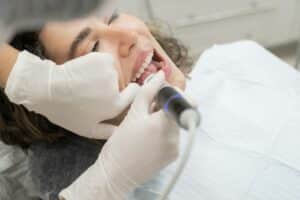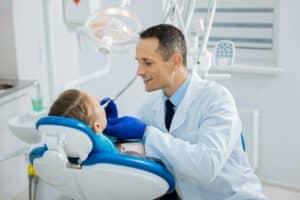Long thought of as simply a mass of bacteria that grows on our teeth over time, plaque apparently could offer great insight into our oral health. The latest studies completed by the Oral Microbiome and Metagenomics Research Lab (OMMR) at the Faculty of Dentistry have shown that plaque could be a more complex material that first thought. Within this post, we’ll go into greater detail on the new data and what it could mean for future dental treatments.
Greater Consistency than Saliva Sampling
One of the major benefits discovered through the latest research was that plaque could provide researchers with a greater degree of sample consistency than current saliva sampling techniques. The problem with saliva samples is that the bacteria within saliva can change throughout the day, preventing professionals from achieving a clear picture on the person’s oral health. The bacterial content from plaque samples, however, remains quite stable over time. This provides health care teams with a greater foundation to understanding a patient’s health.
Non-Invasive
Plaque samples could also offer a non-invasive method of locating stable bacteria samples. Many research teams currently use bacteria from the intestines and the stomach to understand the processes taking place in a patient’s system. But these procedures often require surgery and are considered invasive. Plaque sampling can be completed simply and requires no invasive methods.
Comparison with Biomarkers
The researchers at the OMMR lab found that by using the 16S rRNA gene, which is found in all bacteria on the planet, they could then identify other bacteria present in a plaque sample. Through this process, the research team could distinguish biomarkers that correlate with certain health conditions. This could allow medical teams to build a proactive treatment regimen that is customized to the patient’s unique health conditions. Because this analysis can be completed in just hours, it’s an exciting development in the area of medical diagnosis and could prevent millions from being misdiagnosed in future.
By understanding the bacteria in our mouths and by learning more about what plaque is telling us about the individual patient, we, as care professionals, can improve treatment results and help patients maximize their health over the long-term. It’s exciting news for all hardworking healthcare professionals. To discuss this latest research with an expert, please contact our office team directly today!



